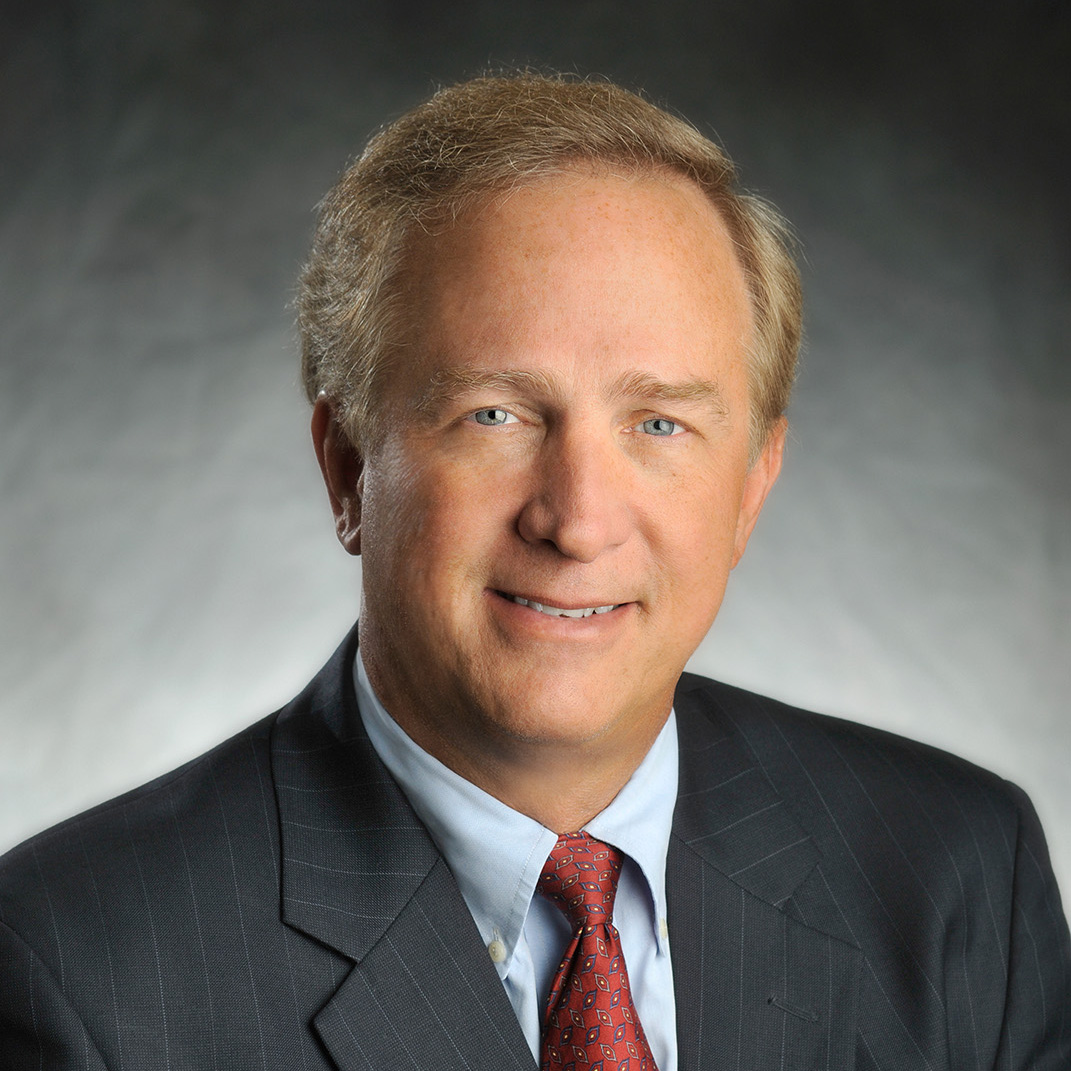Health care Veteran Howard Kern Urges Caution Amid AI Excitement in Mick Lecture
By Dan Carrigan
Artificial Intelligence won’t become your doctor, nurse, or health professional — but it has the potential to address the complex challenges in the U.S. health care system.
 That was the core message delivered to students by VCU Health Administration executive-in-residence Howard Kern (MHA ’81) at the annual Steven S. Mick Lecture in April. Kern’s talk, titled “Can AI Cure US Health care?” offered a blend of optimism and caution.
That was the core message delivered to students by VCU Health Administration executive-in-residence Howard Kern (MHA ’81) at the annual Steven S. Mick Lecture in April. Kern’s talk, titled “Can AI Cure US Health care?” offered a blend of optimism and caution.
Presented to an audience of health administration students, VCU College of Health Professions faculty, VCU Health leaders and community members, Kern painted the picture of AI's capability to address systemic issues while highlighting the ethical and logistical hurdles that may lie ahead. Kern said AI could address high rates of preventable medical errors, excessive costs, guidance navigating the complex system, access to care, inconsistent insurance coverage, data transparency, workforce shortages, and more.
One striking revelation, the former president and CEO of Sentara Healthcare explained, was the exponential growth of medical knowledge, which in 1980 doubled every seven years. By 2010, the doubling rate had accelerated to less than 75 days. This rapid increase underscores the necessity for advanced data management and decision-support systems – areas where AI could potentially make a significant impact.
“The essential competency for health care-related IT is to analyze voluminous data, and dictate relationships between clinical data, patient treatment courses, and you'll improve and improve outcomes,” Kern said.
Kern, who served in health care management roles for more than four decades, shared real-world examples, including from his tenure at Sentara, highlighting both successes and challenges in implementing AI solutions.
One example, a sepsis early detection system – which effectively utilized data from electronic medical records (EMRs) and vital signs – stood out as a success due to its accuracy and ease of integration into clinical workflows. This included the use of AI to scour electronic medical records, analyzing data points like blood pressure and heart rate. Sepsis is a life-threatening condition that demands swift detection and intervention.
“They use those basic dimensions to predict the likelihood of developing sepsis with amazing accuracy,” Kern said.
On the other hand, according to Kern, an AI tool designed while he served in a leadership role to predict hospital readmissions stumbled due to its reliance on extensive unstructured data input from clinical staff. It proved too burdensome, he said. Kern also touched on a supply inventory management tool designed to streamline stock management and prevent essential supply shortages. The project faced technological limitations, complexity of data collection and lack of staff support – all of which illustrate the importance of robust supporting technologies for AI implementation.
Throughout his lecture, Kern acknowledged that while AI offers promising solutions, it is not a panacea. Cultural redesign, interoperability, and consistent data standards are essential for maximizing AI's potential in healthcare – all of which contributed to Kern calling for systemic reforms and enhanced accountability across all stakeholders in the health care system.
“Greater consideration needs to be given to ethical concerns, especially in health care. You're hearing about those ethical concerns in other industries. But they're magnified because of the issues around life-and-death decisions in health care,” Kern said.
Kern pointedly ended the session with an interactive grading of the U.S. health care system by the audience — where the majority rated it between C and D, reflecting a consensus on the urgent need for improvement.
About Stephen S. Mick Lecture Series
The annual lecture honors Mick, faculty emeritus, who served as the Arthur Graham Glasgow Endowed Chair of the Department of Health Administration for a decade, ending in 2009.
The program supports the department in bringing in guest speakers to address current and relevant topics in the industry.